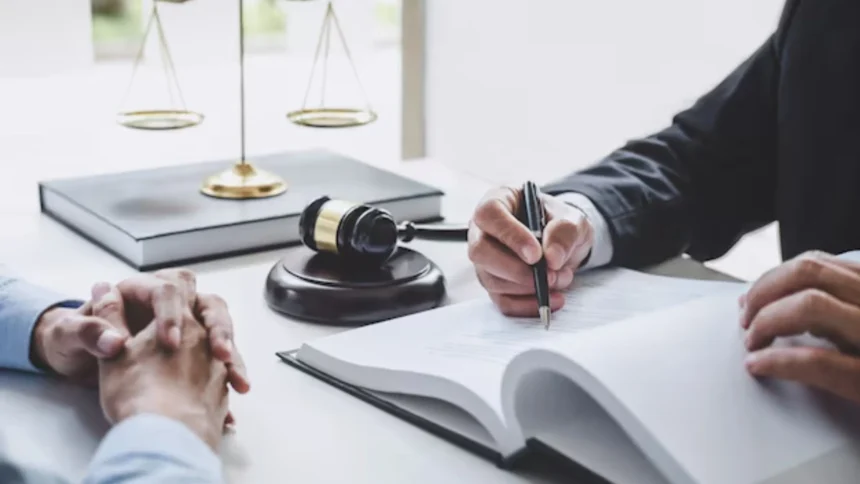Data from the Major Cities Chiefs Association found an overall 6% decline in violent crime among 69 cities during the first six months of 2024. During the first quarter of 2024, the violent crime rate decreased by approximately 15% in the United States.
Criminal charges like drug charges, felonies, misdemeanors, etc. can be extremely stressful for you and your family, as the outcome of the criminal court process can change the course of your life. Criminal charges can result in serious and lifelong consequences, potentially risking your freedom and future.
Having a well-versed criminal defense attorney by your side who is not only experienced in the law and procedure but also understands forensic evidence is highly important as you prepare for your case and fight for your rights.
To understand more about what a criminal defense attorney can do for you, check out this link: https://www.bangerterlaw.com.
Attorney’s Background and Experience
When looking into hiring a criminal defense attorney, researching his background and experience is important to ensure that he is well-equipped to handle your case effectively. Start by checking his education, certifications, and years of practice in criminal law.
According to a drunk driving accident lawyer in Charlotte, NC, when looking for a lawyer, you should assess your situation first to determine which lawyer you may need to hire. If your case involves driving under the influence, look for a lawyer that specializes in DUI. A lawyer who specializes in this area might be able to give you a better defense.
Look into his track record of successes and experience in negotiations and trials. This information can give you insight into his ability to handle the challenges of your case and provide you with the best possible defense.
Consider any specialized training or affiliations the attorney may have. Being part of professional organizations or receiving acknowledgment in the legal community shows a commitment to keeping up with legal trends and best practices.
Discussion of Charges and Allegations
As you move forward with the consultation, it’s important to address the specific charges and allegations you’re facing in your criminal case. Your criminal defense attorney will carefully review the charges brought against you, explain the legal implications of each charge, and discuss the potential consequences if you’re convicted.
During the consultation, your attorney will take the time to hear your perspective, collect details about what happened leading to the charges, and evaluate how strong the prosecution’s case is against you.
Being open and straightforward with your attorney about every detail concerning the charges is really important. Sharing accurate information will help your attorney create the most effective defense strategy that fits your unique situation. Your lawyer might ask about any evidence you have that could help your defense or challenge the prosecution’s case.
Potential Defense Strategies
Exploring various defense strategies with your criminal defense attorney is important in building a strong case against the charges you’re facing. One common strategy is challenging the evidence presented by the prosecution. Your attorney might take a close look at how the evidence was collected, who handled it, and whether it is genuine, all in an effort to challenge the prosecution’s case.
Another way to defend yourself might be to claim that your rights were not respected during the investigation or arrest. If law enforcement went beyond their limits or did not adhere to the correct procedures, it might result in the charges being dropped. Establishing an alibi, showing mistaken identity, or proving a lack of intent can be effective defense strategies based on the specifics of your situation.
Legal Options and Recommendations
During the consultation, a lawyer will discuss your legal options and provide guidance tailored to the details of your situation. Your attorney will discuss potential defense strategies, such as challenging the legality of the evidence or negotiating a plea deal. Legal options may include going to trial to fight the charges, seeking a dismissal based on procedural errors, or pursuing alternative sentencing options.
Your attorney will explain the potential outcomes of each option, guiding you on the best course of action to take. Recommendations provided by your attorney will be tailored to your unique situation, taking into account factors like the severity of the charges, your criminal history, and any mitigating circumstances.
Next Steps and Follow-Up Process
After discussing your legal options and recommendations with your criminal defense attorney, the next steps and follow-up process will involve developing a strategic plan for your defense. Your attorney will work closely with you to gather any necessary evidence, such as witness statements, documents, or other relevant information that can support your case.
After your first meeting, your attorney will probably set up more meetings to keep you in the loop about your case, answer any questions you might have, and talk about any new updates that come up. Keeping an open line of communication with your attorney is important. Sharing any extra information or insights can really help in creating a strong defense.
Throughout this process, your attorney will guide you on what to expect during court proceedings, potential challenges that may arise, and how to prepare for different scenarios. You can work collaboratively towards securing the best possible result for your case by following their advice and actively participating in your defense strategy.
Conclusion
When looking for a lawyer, you need to assess your situation first. By doing this, you can ensure that you hire a lawyer that specializes in the case that you’re being charged with. A lawyer who specializes in this area might be able to give you a better defense. Meeting with a criminal defense attorney is necessary in managing the legal system and protecting your rights.
During the consultation, you can expect to discuss the attorney’s background, charges and allegations, potential defense strategies, legal options, and next steps. Keep in mind to be open and honest about your situation, as the attorney is there to help guide you through the process and advocate for your best interests.



